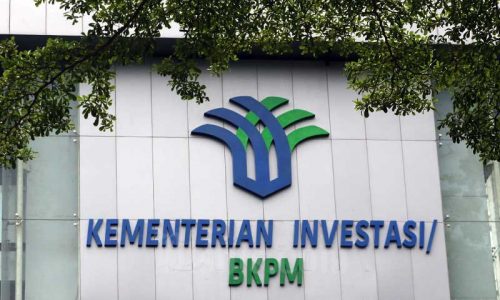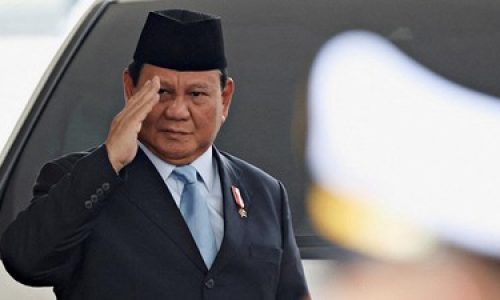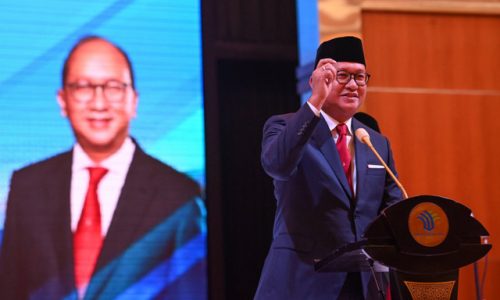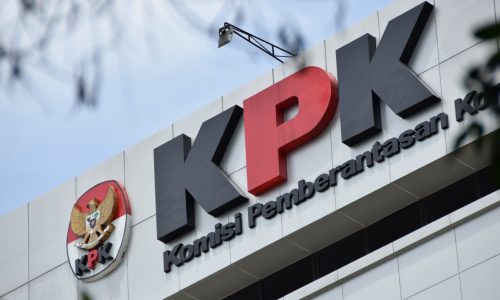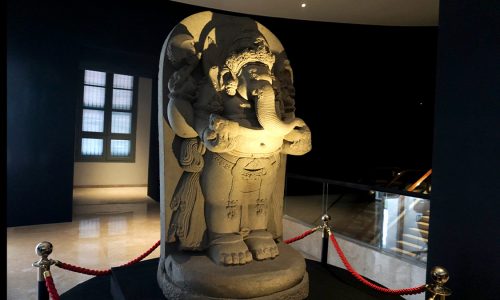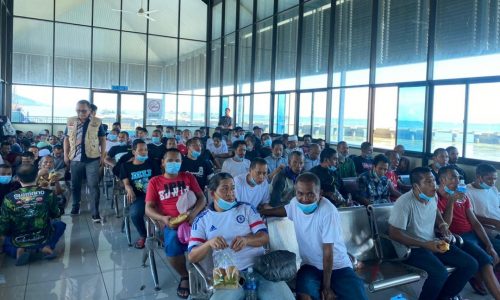The three vice presidential candidates met on Sunday night for their second debate session, which discussed issues of natural resources, environment, energy, food, agrarian problems, indigenous people and villages.
In the aftermath of the debate, the Mining Advocacy Network (JATAM) invited the Indonesian general public to scrutinize business interests of the election contestants and their supporters along with the launch of their investigation report “Mining & Energy Oligarchy Network in the 2024 Election”.
This report explores businesses of supporters of the election candidates that potentially damage the environment and conflict of interests of the ruling administration and the oligarchy that has spawned various controversial laws.
This report was produced between December 2023 and January 2024, with a focus on businesses of the candidates and their campaign teams, the data and information of which were obtained from the most recent official documents ‒ of government and internal company reports ‒ and primary sources, while journals and media reports were incorporated as supporting references.
“We traced political parties’ direct affiliations with companies in the mining and energy sector. We compiled and analyzed all the information that we have obtained, then drew conclusions by means of the Social Network Analysis method,” said Melky Nahar, National Coordinator of JATAM, at the launch of the report on Monday, January 22, 2024.
Three pairs of State leadership candidates ‒ Anies Baswedan-Muhaimin Iskandar (AMIN), Prabowo Subianto-Gibran Rakabuming Raka (Prabowo-Gibran), and Ganjar Pranowo-Mahfud MD (Ganjar-Mahfud) ‒ have been confirmed by the General Elections Commission (KPU) as contestants of the 2024 Presidential Election.
The AMIN pair is backed by the NasDem Party, the National Awakening Party (PKB), the Prosperous Justice Party (PKS), and the Ummat Party. Meanwhile, Prabowo-Gibran is supported by the Gerindra Party, the Golkar Party, the Democratic Party, the National Mandate Party (PAN), the Crescent Star Party (PBB), the Indonesian Solidarity Party (PSI), the Gelora Party, the Garuda Party, and the Prima Party. Lastly, the Ganjar-Mahfud pair is supported by the Indonesian Democratic Party of Struggle (PDI-P), the United Development Party (PPP), the Hanura Party and the Perindo Party.
The report reveals that there are figures within each camp of the three presidential-vice-presidential pairs that have business backgrounds and are affiliated with a variety of businesses, including in the mining and energy sector.
“In the Anies-Muhaimin pair, for example, there are seven people affiliated with the mining and energy business. In the Prabowo-Gibran pair, there are eighteen people, including Prabowo. Meanwhile in the Ganjar-Mahfud pair, there are seven people,” Melky said.
“Figures in the three election winning teams are not only affiliated with the mining and energy business, but also have business relations with each other within the same election winning team as well as with the other two election winning teams,” he added.
The report shows how politics is very tempting to all professions, including entrepreneurs, and also prone to conflicts of interest. Businesspeople involved are basically rent-seekers who maintain close relation with power holder in order to obtain privileges and political protection.
“The oligarchs’ hegemony in politics, such as in this election, is bitter for democratization. It will easily tamper with policies and regulations of the government, and in the end, it will easily plunder the natural resources of the archipelago,” said Melky.
The situation in the 2024 elections is not much different from the previous elections, particularly in the 2019 elections, where some candidate pairs have business backgrounds and members of the election winning teams are also mostly entrepreneurs.
Not surprisingly, after Jokowi was re-elected in the 2019 elections, various policies and regulations were made to accommodate the interests of the oligarchy, the report cited.
They include the Omnibus Law and the Coal and Mineral Mining Law, which are loaded with business interests. These two regulations actually provide many privileges for mining business actors, starting from the automatic extension of mining licences without going through a bidding mechanism, the elimination of royalty payments of zero percent to coal companies that provide added value, to a large space for criminalization for residents at mining areas.
At the same time, licence granting officials are actually protected through the elimination of criminal articles in the laws.
The report highlights the revision of the law on the Corruption Eradication Commission (KPK) during the Jokowi administration, which gives room for criminalization, instead of strengthening the prevention and eradication of corruption.
On the contrary, it provides space for businesspeople to easily hijack state projects and escape from prosecution.
The report suggests that the Indonesian people should not place excessive expectations on the election contestants, the political parties, their supporters and the election winning teams.
The contestants, who are maintaining and seizing power, were not born and raised in a crisis situation, as what the residents in mining areas have been experiencing.
“On the contrary, they are part of the problem, enjoying multiple benefits,” said Melky.



